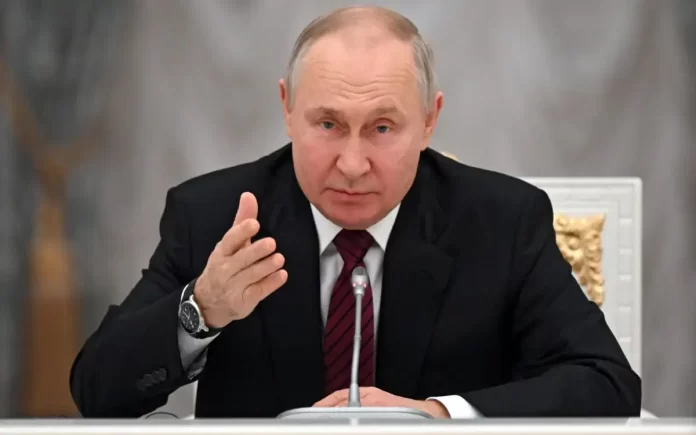Moscow: In a move that reverberates through diplomatic corridors, Russian President Vladimir Putin has unexpectedly deferred his highly anticipated journey to Turkey, heralding a notable shift in the geopolitical landscape. This decision not only alters the trajectory of Putin’s diplomatic engagements but also underscores the intricacies of international relations amidst ongoing global tensions.
The postponement, as revealed by a report from the Russian state news agency Tass, arrives as a surprise to many, with the specific reasons behind the decision shrouded in ambiguity.
“A diplomatic source has disclosed to the Russian channel that the visit has been postponed. Details surrounding the decision remain undisclosed,” Tass disclosed, leaving analysts and observers speculating on the underlying motives.
The visit, long speculated upon by international circles, carried the weight of expectation, particularly as it would have marked Putin’s inaugural visit to a NATO country since the onset of the Ukraine invasion nearly two years ago. Foremost among the anticipated agenda items was the discourse on the Ukraine conflict, a topic of immense global significance.
While the Kremlin had acknowledged the contemplation of a visit to Turkey, a concrete timeline had not been established, as Kremlin spokesperson Dmitrij Peskov elucidated earlier in January, as reported by Tass.
The precise timing for the visit has yet to be determined,” Peskov had remarked, hinting at the fluidity of diplomatic engagements amidst evolving circumstances.
Initially proposed for February 12 by Turkish authorities, Putin’s visit to Turkey held strategic importance, given Turkey’s pivotal role as a NATO member and its burgeoning relationship with Russia.
Yuri Ushakov, a key foreign policy advisor to Putin, had hinted at the centrality of Ukrainian affairs in the discussions during the visit, underscoring the relevance of the visit amidst ongoing global tensions.
“Preparations for the visit are underway. Ukrainian matters will likely dominate the discourse,” Ushakov had indicated in an interview with the Interfax news agency.
Turkey’s geopolitical stance, straddling between its NATO allegiance and its diplomatic engagements with Russia, adds layers of complexity to Putin’s postponed visit. Despite being a crucial NATO ally, Turkey has managed to maintain diplomatic ties with Russia, navigating the delicate balance between Western expectations and regional exigencies.
Under President Erdoğan’s leadership, Turkey has demonstrated a nuanced approach, extending military aid to Ukraine while abstaining from endorsing Western sanctions against Moscow. This delicate balancing act reflects Turkey’s strategic imperative to safeguard its national interests while navigating the turbulent waters of global politics.
Furthermore, Turkey’s economic entanglements with both Russia and Ukraine underscore its multifaceted role in the geopolitical arena. From lucrative contracts in the drone manufacturing sector to reliance on Russian gas imports, Turkey’s economic interests are intertwined with the fortunes of both nations.
As Putin’s postponed visit to Turkey reverberates across international spheres, it serves as a poignant reminder of the intricacies and complexities that define contemporary diplomacy.



